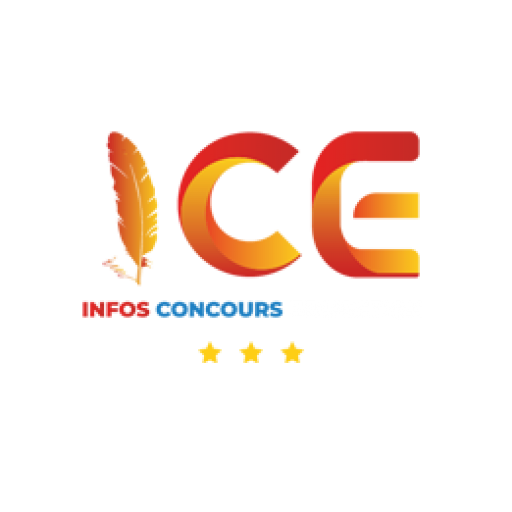Call for Proposals: Consultancy Opportunity with Local Youth Corner Cameroon (LOYOC)
Local Youth Corner Cameroon (LOYOC) is inviting qualified consultants or a consulting team to conduct two in-depth studies aimed at enhancing peacebuilding efforts in Cameroon. This consultancy is a critical component of LOYOC’s broader initiative, “Promoting Youth Participation in the Peace Process” in the Northwest and Southwest Regions of Cameroon. The studies will run concurrently over a period of six months.
Scope of Work
The selected consultant(s) will be responsible for the following:
- Conflict Mapping Exercise
A comprehensive analysis of both national and local peace processes in Cameroon. This study will identify key stakeholders, ongoing initiatives, and the dynamics influencing conflict and peace efforts across the country. - Case Studies & Success Stories
Documenting inspiring contributions of youth, with a special focus on female youth, in peacebuilding activities. These stories will highlight positive impacts and innovative approaches driven by young people in fostering sustainable peace.
About LOYOC
Local Youth Corner Cameroon (LOYOC) is a national, non-profit, youth-led organization founded in 2002 and officially registered in 2004. LOYOC’s core mission is to empower young people—particularly those aged 15 to 35—to become proactive contributors to peacebuilding, the prevention of violent extremism, and the promotion of sustainable development.
The organization emerged in response to the pressing socio-political and economic challenges facing young people in Cameroon. These include high unemployment rates, poor governance, gender-based violence, and the widespread exclusion of youth from decision-making processes. Since its inception, LOYOC has made a profound impact both locally and internationally, driving youth engagement in peace initiatives and advocating for youth-focused policies.
About the Project
The “Promoting Youth Participation in the Peace Process in the Northwest and Southwest Regions of Cameroon” is a 24-month initiative implemented by the Dallaire Institute for Children, Peace, and Security in partnership with LOYOC. This project aims to reduce the impact of the ongoing Anglophone crisis in Cameroon’s Northwest and Southwest regions, while empowering young people to take active roles in peacebuilding efforts at community, regional, and national levels.
The project aligns with the goals of the Peace and Stabilization Operations Program (PSOPs), which focuses on peacebuilding, conflict prevention, and stabilization in fragile states. It also complements the Government of Canada’s initiatives to support and facilitate peace processes in the region.
Research Specifications
In alignment with the objectives of the aforementioned project, and under the direct supervision of LOYOC’s National Programs Manager, the selected consultant(s) will be tasked with executing the following responsibilities:
1. Comprehensive Conflict Mapping Exercise
The primary aim of this assignment is to analyze and map the existing peace processes in Cameroon at both national and local levels. The exercise will focus on identifying gaps, barriers, and challenges that limit youth participation in these processes. Based on the findings, the consultant(s) will propose practical solutions to enhance youth engagement in peacebuilding efforts.
Key Activities Include:
2. Stakeholder Identification
Objective:
To identify and document key stakeholders actively engaged in the ongoing peace processes at both national and local levels.
Key Stakeholders Include:
- Government officials and representatives from national, regional, and local authorities.
- Civil society organizations (CSOs) and youth groups involved in peacebuilding initiatives.
- Community leaders, including religious leaders, traditional rulers, and elders.
- International actors and partners engaged in mediation or peacebuilding efforts, such as the United Nations, international NGOs, and diplomatic missions.
Expected Outcome:
A comprehensive list of stakeholders detailing their roles, responsibilities, and levels of involvement in peace processes. Additionally, an analysis of their contributions and influence on the peacebuilding landscape will be provided.
Barriers to Youth Participation in Peace Processes
Objective:
The primary goal is to identify the barriers and challenges that hinder youth engagement in peace processes. These barriers are often rooted in socio-cultural norms, political instability, and structural limitations. Understanding these obstacles is crucial for creating inclusive and effective peacebuilding strategies.
1. Socio-Cultural Barriers
- Societal Attitudes: Prevailing perceptions and biases towards young people often limit their involvement in decision-making processes.
- Cultural Norms and Gender Roles: Traditional expectations, particularly those related to gender, restrict participation, especially among young women who face additional layers of discrimination and exclusion.
2. Political and Economic Barriers
- Political Instability: Frequent conflicts and unstable political environments create unsafe conditions, discouraging youth from participating in peacebuilding initiatives.
- Limited Access to Decision-Making Platforms: Young people are often excluded from formal political processes and peace negotiations, leaving them without a voice in key discussions.
- Economic Challenges: High unemployment rates and lack of economic opportunities make it difficult for youth to prioritize peacebuilding when basic needs are unmet.
3. Structural Barriers
- Institutional Limitations: The absence of youth-friendly policies and dedicated platforms for young voices creates systemic exclusion.
- Exclusion from Formal Dialogues: Youth are frequently left out of official peace dialogues and negotiations, limiting their influence on conflict resolution processes.
Expected Outcome:
This study aims to deliver a comprehensive analysis of the key barriers to youth participation in peace processes, with particular emphasis on the conflict-affected regions of Northwest and Southwest Cameroon. The outcome will be a well-structured, actionable report that will be shared with key stakeholders, including LOYOC, project partners, and relevant governmental and non-governmental organizations.
Case Studies and Positive Youth Contributions to Peacebuilding
Objective:
To highlight and document success stories and case studies that demonstrate the positive impact of youth in peacebuilding efforts. This section will showcase youth-led initiatives, with a focus on the role of young women and their contributions to fostering peace.
Key Tasks:
- Documenting Youth-Led Peace Initiatives:
- Collect and present case studies of successful projects led by young people, particularly those facilitated by LOYOC’s activities.
- Measuring Impact:
- Assess and document the impact of LOYOC and the Dallaire Institute’s initiatives on the capacities of individual participants and organizations involved in peacebuilding.
- Highlighting Regional Success Stories:
- Showcase impactful initiatives implemented by youth in conflict-affected areas such as the Far North, Northwest, and Southwest regions of Cameroon.
- Emphasizing Female Youth Leadership:
- Illustrate the leadership, resilience, and impact of young women in peacebuilding efforts, emphasizing their unique contributions and challenges.
Data Collection and Review Process:
- In-Person Review Meetings:
Conduct meetings with LOYOC project staff to gather data on completed, ongoing, and upcoming activities, including feedback from participants. - Field Participation:
Attend selected project activities to document firsthand the impact of these initiatives and collect stories from participants. - Participant Feedback and Data Collection:
Engage directly with project participants to gather qualitative and quantitative data, ensuring a comprehensive understanding of the initiatives’ success and areas for improvement.
Expected Outcome
The project aims to produce engaging and inspiring case studies that will serve as powerful tools for advocacy and knowledge sharing on effective youth-driven peacebuilding models. These case studies will highlight successful initiatives, fostering greater understanding and replication of best practices in youth participation in peace processes.
Key Deliverables
The selected consultant(s) will be responsible for delivering the following:
- Inception Report (Detailed Work Plan)
Following initial consultations with the project team, the consultant(s) must develop a comprehensive work plan. This document should outline the full research timeline, identify key milestones, specify deadlines, and assign responsibilities for each phase of the project. - Final Comprehensive Report of the Mapping Exercise
The final report should include:
- Executive Summary: A concise, high-level overview of key findings and recommendations.
- Findings of the Study: A thorough analysis of peace processes, the role of youth participation, and the barriers preventing greater involvement.
- Recommendations: Actionable solutions and strategies to enhance youth engagement in peacebuilding efforts.
- Complete Case Studies/Success Stories
The consultant(s) will develop detailed case studies and success stories showcasing the impact of Dallaire/LOYOC projects on youth and youth-led peace initiatives. These narratives will illustrate how these initiatives have influenced both the participants and their broader communities, contributing to the overall peace process.
Qualifications
The ideal consultant(s) will meet the following criteria:
- Educational Requirements
- A Master’s degree in Political Science, International Development, Conflict Studies, or a closely related field.
- Experience
- A minimum of 5 years of proven experience in coordinating and conducting international research projects in the areas of peace and security.
- Strong expertise in both qualitative and quantitative research methods, with a focus on issues related to youth, peace, and security.
- Demonstrated ability to produce clear, accessible reports tailored for NGOs, governmental agencies, and international organizations.
- An extensive network and access to data sources, especially in conflict-affected regions at the national level.
- Language Requirements
- Fluency in written and spoken English is mandatory.
- Knowledge of additional local languages (such as Pidgin or French) spoken in the Northwest and Southwest regions is highly desirable.
Research Duration & Timeline
The research project is scheduled to be completed within six (6) months from the date the contract is signed. Below is the detailed timeline for key deliverables:
- February 21: Consultant recruitment finalized.
- February 28: Submission of the Inception Report.
- May 30: Submission of the First Draft of the mapping exercise report.
- June 27: Submission of the Final Draft of the mapping exercise report.
- July 25: Submission of Draft Success Stories/Case Studies.
- August 15: Submission of Final Success Stories/Case Studies.
Payment Terms
The payment of professional fees will be strictly tied to the successful submission of the agreed deliverables. LOYOC reserves the right to withhold payment if the submitted deliverables do not meet the required standards or if there are delays in submission from the consultant’s side.
Application Process
Interested consultants or consulting teams are encouraged to submit their Expressions of Interest (EOI) via email to:
📧 recruitment@loyocameroon.org
With CC to: jude.a@loyocameroon.org and ingrid.v@loyocameroon.org
Required Documents:
- Technical and Financial Proposal
- Maximum of 6 pages outlining your methodology and associated costs.
- Proposals should be tailored for each specific offer.
- Curriculum Vitae (CV)
- Detailed CV(s) of consultant(s), highlighting relevant experience.
- Work Samples
- Up to two examples showcasing previous research or reports in the field of youth and peacebuilding.
- Work Plan & Timeline
- A brief work plan detailing how you will carry out the tasks, including a timeline for each deliverable.
All applications must be submitted by February 17, 2025, at 12:00 PM (noon).





